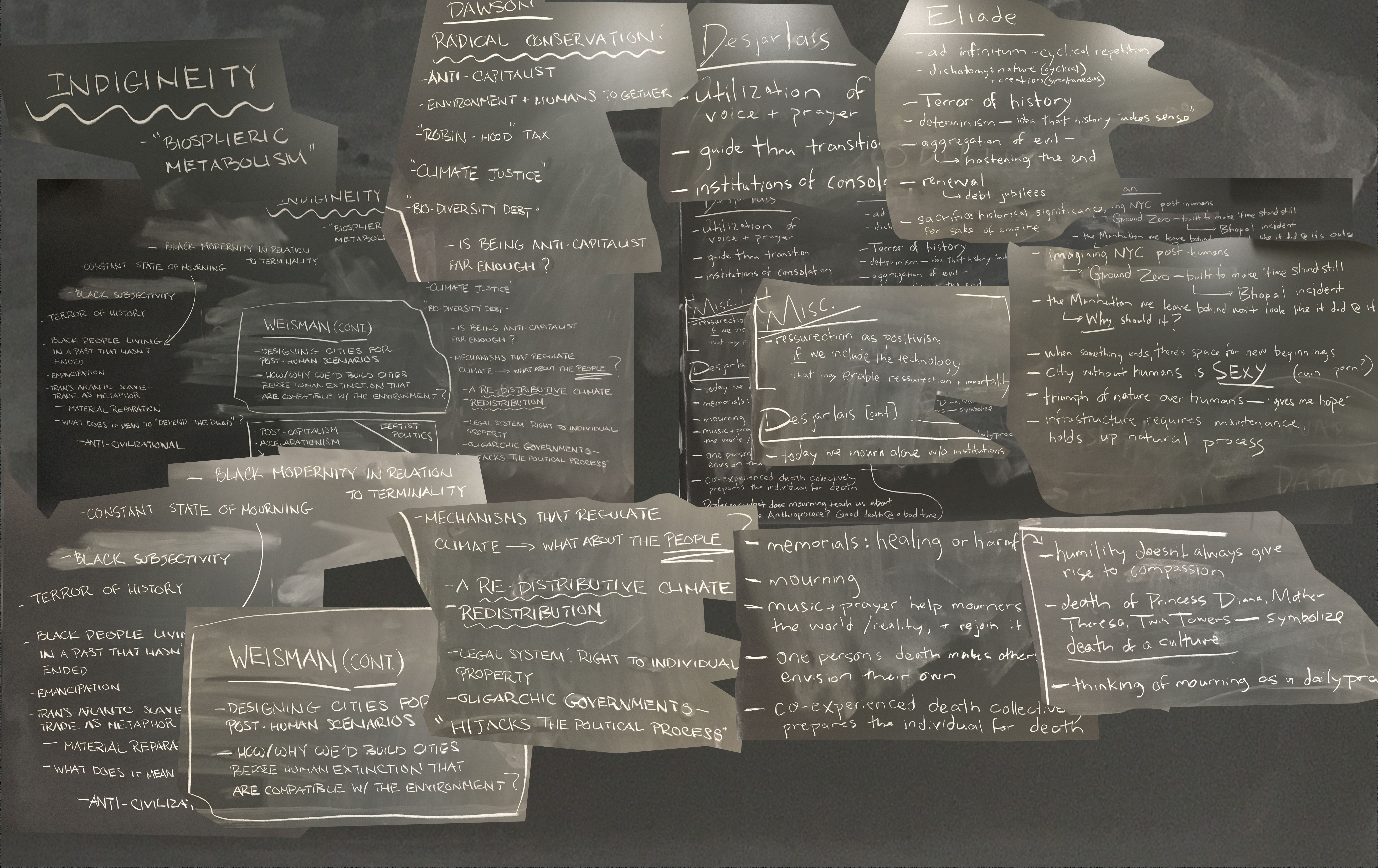Group: Raphael Barnes, Claire Paterson, Jack Plants
An essential facet of the modern, disenchanted, secular world is the conception of time as linear, unceasing, and perpetual. In a discussion of the problems faced in the secular subject of history, Chakrabarty notes that:
“History’s own time is godless, continuous, and, to follow Benjamin, empty and homogenous […] further, this time is empty because it acts as a bottomless sack: any number of events can be put inside it; and it is homogenous because it is not affected by any particular events: its existence is independent of such events and in a sense it exists prior to them. Events happen in time but time is not affected by them” (36).
Essentially, humanity just happens to exist as a blip along this narrative of linear time; we are simply “along for the ride”. In this respect, this notion of secular time maintains a certain god-like omnipresence about it. The secular self, a “buffered” self, is said to be disengaged from an ineffable beyond– self-directing, self-controlling, and autonomous. However, humanity cannot alter the passage of secular time– we are within the “bottomless sack”–and is thus perhaps our greatest enemy.
The lived experience of the modern individual is indisputably finite, and as Gillian Beer notes in Darwin and the Uses of Extinction:
“Extinction is mortality writ large and human beings in current secular societies have—paradoxically—very contracted life spans compared with Victorian believers. We may live longer on earth, but there is no expectation of future life beyond death. Is this abbreviation of life one reason for the current terror in the face of extinction?” (326).
Beer claims that the abbreviation of life could be behind the increased terror we currently feel in the face of extinction. Similarly, on a more personal scale, acknowledgement of the finitude of human life can render life meaningless. although we’d like to think the existence of the human race survive on this timeline for eternity.
Awareness of our species’ unstoppable hurtle toward extinction, a collective awareness of our own mortality, could be understood as a motivator with a paradoxical function– inspiring the making of meaning in life. To live with specific purpose or intent, or to work toward an end goal in life, is, in some capacity, a “disruptive” re-framing of the lived experience of linear time in a teleological framework– a notion of “teleological time”.
To exist in a temporal space guided by a self-made purpose or function can serve to ground the individual self in a personalized space within the otherwise abstract realm of secular time. Such an idea is written into the core values of our culture: live life to the fullest, be the best you can be, carpe diem. We are inculcated with the notion that meaning in life can come of the transcending of one’s own lifespan–of the act of “leaving one’s mark on the world.” We cannot deny our own mortality, or our eventual extinction–the clock is indeed “running out”. But, to exist within a teleological conception of time is to, albeit ephemerally, gain a modicum of agency in the lived experience of time; to disrupt, to distract, to supplement an otherwise melancholy existence.

Recent Comments